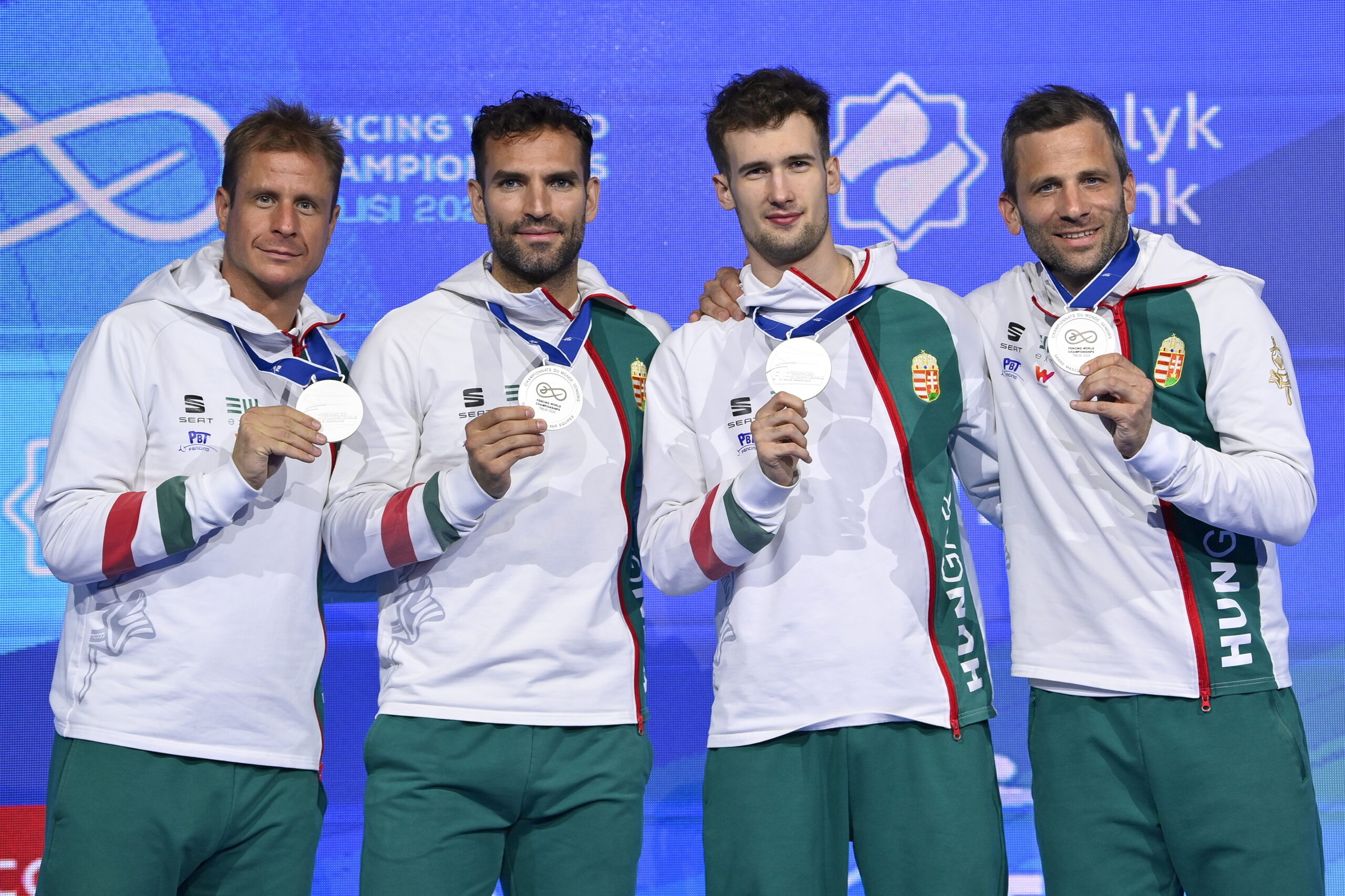
The Hungarian fencers faced Italy, whom they had beaten confidently in the final of the European Championships last month.Continue reading
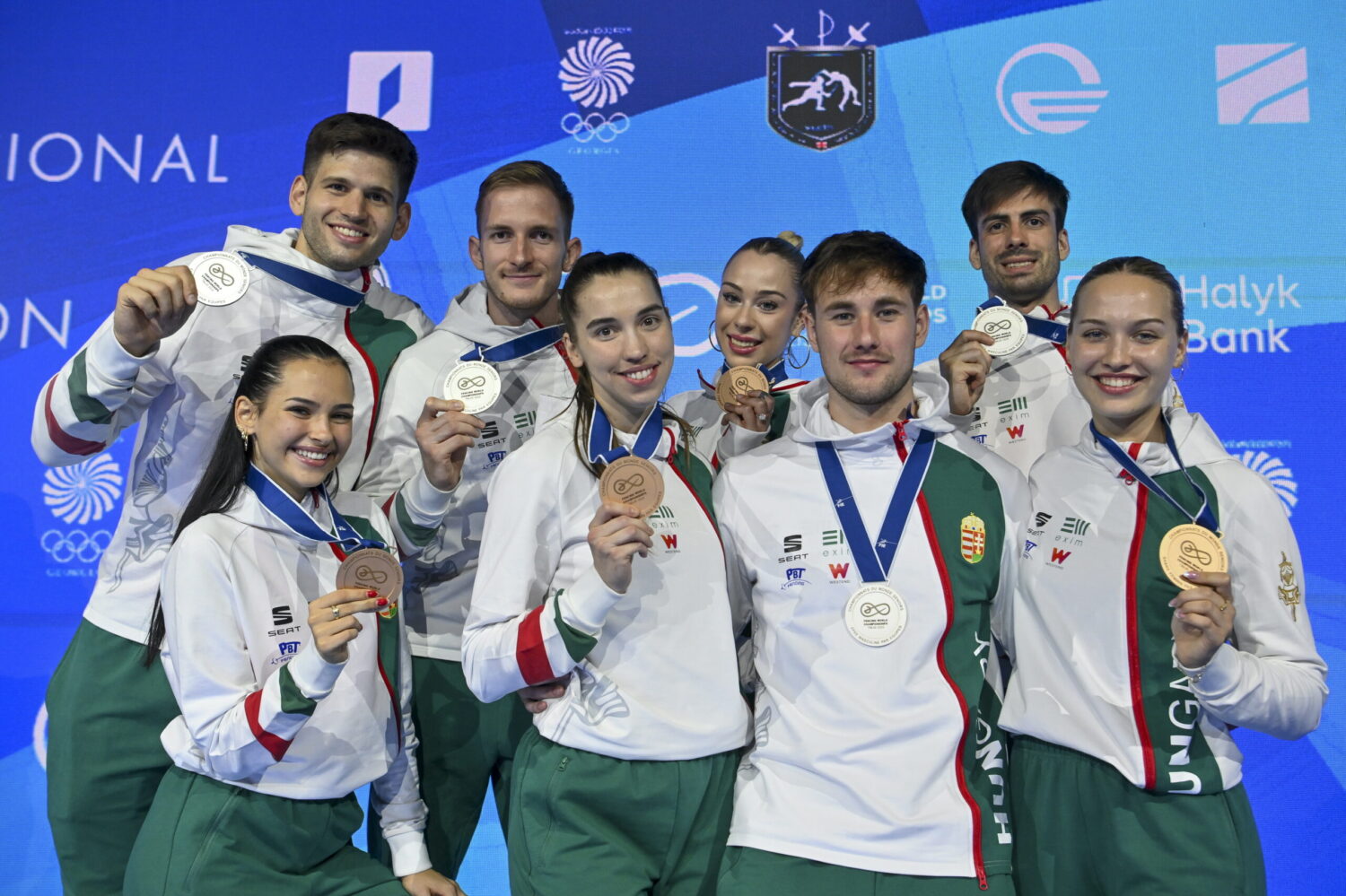
Following the earlier success of the men’s sabre team, two more Hungarian squads reached the podium at the World Fencing Championships in Tbilisi, Georgia: the women’s sabre team secured bronze, while the men’s épée team claimed silver.
The Hungarian women’s sabre team, consisting of Sugár Battai, Liza Pusztai, Luca Szűcs, and Renáta Katona, defeated Germany and Bulgaria to reach the semifinals, where they lost by four hits to the reigning European champions from France. In the bronze medal match, they faced Japan — a team led by two-time individual world champion Misaki Emura — and delivered a convincing 45–34 victory.
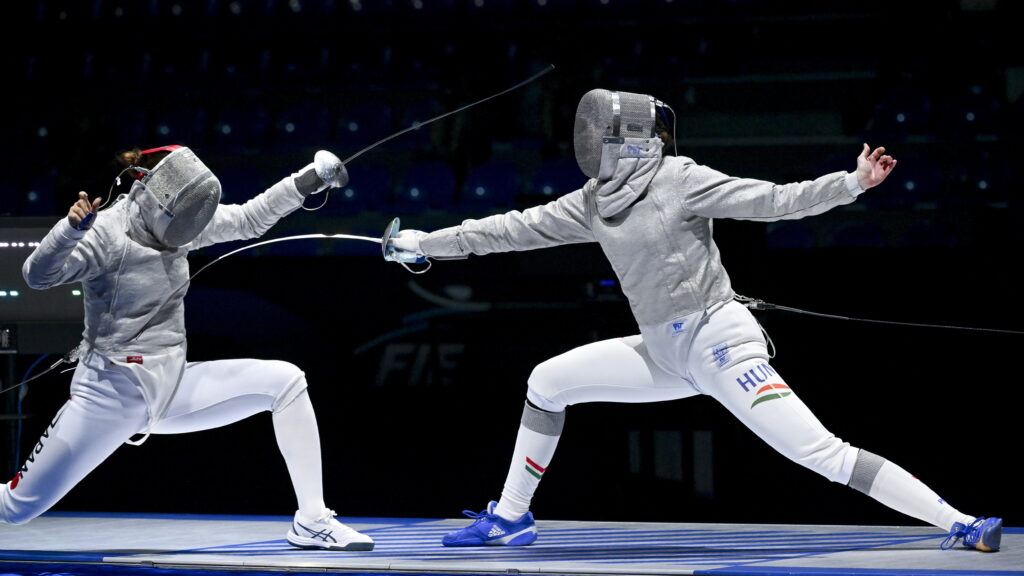
Renáta Katona (L) Juina Kaneko of Japan. Photo: MTI/Czeglédi Zsolt
“We try to show at every competition that we belong among the elite, but today was really about fighting spirit and unity. It was about going to the very end for one another,” said Luca Szűcs after the match. Sugár Battai added: “We came here aiming for a medal, therefore I am absolutely happy and satisfied. There were ups and downs, but we functioned as a team.”
Head coach Etele Ravasz also praised the performance:
This has been one of the best seasons ever for women’s sabre. We have been on the podium at many World Cups, and the girls have even won some. I am glad we took a step forward here too, and they managed to regroup in a very strong field.”
Ravasz revealed that the day before the team event, after a light training session, they had lunch together and he reminded his world champion and Olympian athletes to make the fencing world remember who they are. “Today, the women’s sabre team partially did that,” he added.
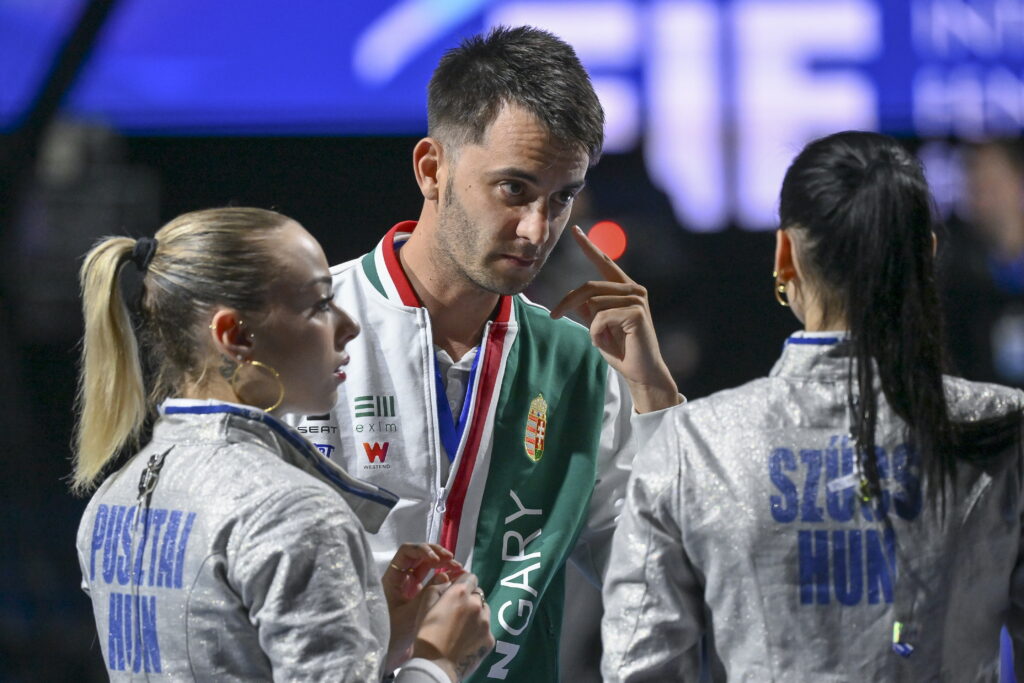
Head coach Etele Ravasz (C), Liza Pusztai (L) and Luca Szűcs. Photo: MTI/Czeglédi Zsolt
The Hungarian men’s épée team — Gergely Siklósi, Máté Koch, Tibor Andrásfi, and Zsombor Keszthelyi — also put in a strong performance, defeating Hong Kong, Venezuela, and France to reach the final, where they faced Japan. The two teams previously met in the Tokyo Olympic final, where Hungary triumphed in overtime thanks to a hit from Siklósi.
This time, however, the match went in Japan’s favor. After two tight bouts, Koch and Andrásfi each suffered three-hit losses, giving the Japanese a significant lead. They managed that lead efficiently, while the Hungarians struggled to land hits. Japan eventually won 45–35.
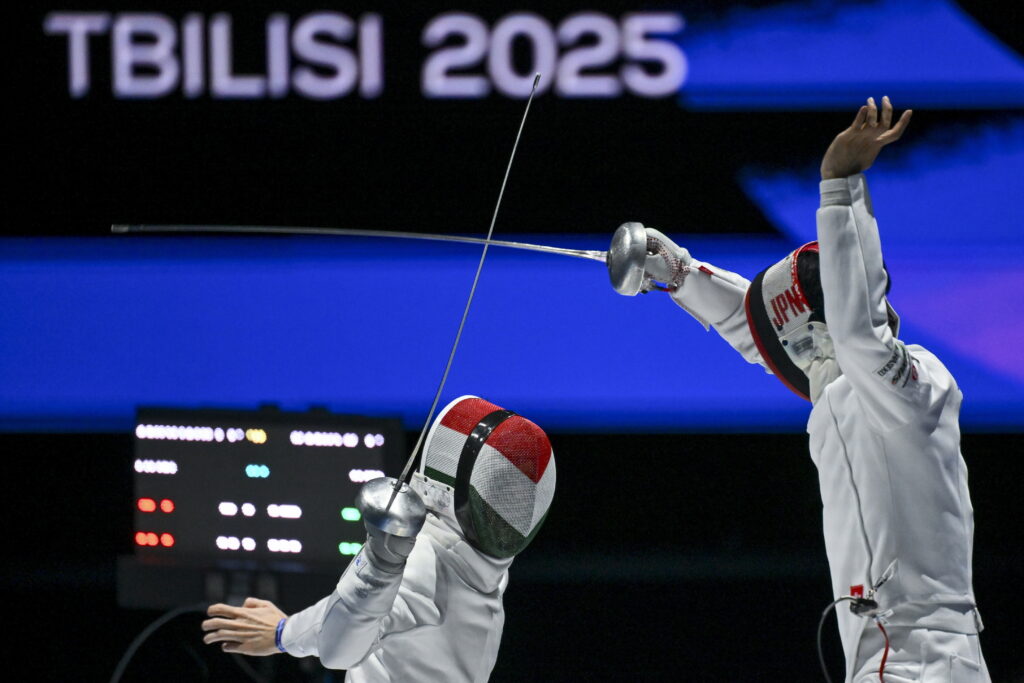
Tibor Andrásfi (L) Koki Kano of Japan. Photo: MTI/Czeglédi Zsolt
“I think we fenced well, but the Japanese were just much stronger. That was clear throughout the day. They are a very solid team, and today the better side won,” said Koch.
Andrásfi added:
We always say that if two of us fence well, we have a chance at a medal. If three of us do, we can win. Well, all three Japanese fencers were on point today — we could not find any weak spots.”
Siklósi was more critical: “The opponent fenced really well. It is clear that teams have studied us on video. All four of us need to constantly evolve. Máté and Tibor did not have the best seasons, and I think they will need to make big changes moving forward.” As for his own performance, he admitted the individual competition may have taken a toll, and the Japanese had clearly prepared for him: “I just could not surprise them the way I used to.”
Altogether, the Hungarian delegation finished ninth on the medal table in Tbilisi, with three silver and three bronze medals. However, in terms of total podium finishes, Hungary was among the top nations alongside fencing powerhouses France and Italy.
Via MTI, Featured image: MTI/Czeglédi Zsolt